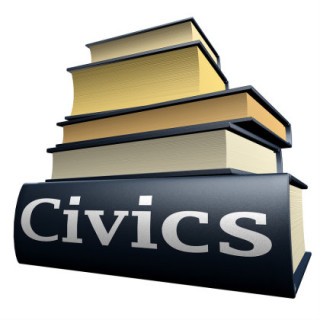One challenge facing many planners is explaining what planning is and how it operates in terms community members can understand. A related concern, especially in smaller communities, is finding good volunteers willing to serve on the local planning or zoning board.
One promising way of meeting both these challenges is through the use of “citizen planning academies” (CPAs). In this article, we’ll explain just what CPAs are; take a look at a few communities that have used them; examine how they are organized; and see how the public (and the planning commission) has benefited from them. 1 We’ll also provide you with some tips in case you might be interested in setting up an academy in your town, city, or county.
What Exactly is a CPA?
CPAs are designed as community education programs, which facilitate and support understanding of planning and planning policy between the local government and its citizens. The academies serve as bridges to the local populous, reconnecting the behaviors and actions of the local government with interested and aware citizens.
 Most CPAs are conducted through a set of classes focused on certain facets or themes of planning and local government. Classes also typically allow ample time for discussion. CPAs provide a “safe space” for local officials and community participants to engage and have a critical dialogue about planning issues and topics.
Most CPAs are conducted through a set of classes focused on certain facets or themes of planning and local government. Classes also typically allow ample time for discussion. CPAs provide a “safe space” for local officials and community participants to engage and have a critical dialogue about planning issues and topics.
For any community, large or small, CPAs can serve as a useful tool to bring together community leaders and promote dialogue, discussion, and cohesive action.
Let’s look at how three very different communities, Glenwood Springs, Colorado; Rockingham County, North Carolina; and the City of Las Vegas, Nevada, have made use of citizen planning academies.
Glenwood Springs, Colorado
At the confluence of the Colorado and Roaring Fork rivers is one of the most walkable towns in America: Glenwood Springs, Colorado. With a population of 9,600, it has a small town feel while being situated between major ski destinations in Aspen and Vail. It is also known to contain the world’s largest hot springs pool, attracting many tourists. 2
Glenwood Springs’ CPA, called the “Community Development Academy,” began through the support of the Sonoran Institute, a non-profit organization that enables community decisions and public policies to respect the landscapes and resources of the Western U.S. With Glenwood Springs already receiving technical support from the Sonoran Institute for community development opportunities, organizing a CPA seemed a good fit.
The city had a strong interest in building more leadership, broadening awareness, and increasing citizen involvement in planning.
As Jillian Sutherland, Sonoran’s Project Manager explained, the city had a strong interest in building more leadership, broadening awareness, and increasing citizen involvement in planning — matching the objectives of a CPA. 3
 Glenwood Springs’ Community Development Academy (initiated last September) was organized as an eight week course, costing each of the 24 participants $100. This included the cost of course materials and dinner at each session. To apply, participants had to submit a brief summary of their background and community activities, as well as their interest in the Academy and how they felt it could benefit their leadership role in the community.
Glenwood Springs’ Community Development Academy (initiated last September) was organized as an eight week course, costing each of the 24 participants $100. This included the cost of course materials and dinner at each session. To apply, participants had to submit a brief summary of their background and community activities, as well as their interest in the Academy and how they felt it could benefit their leadership role in the community.
Coming from diverse backgrounds (finance, healthcare, real estate, education, etc.), participants saw the program as a great avenue to bolster understanding between government and community members. Additionally, it was understood as a great first step in becoming more involved locally.
Each class had a specific focus. The first, titled “Successful Communities: The Big Picture,” looked at the larger context of Glenwood Springs, discussing the ingredients that create an economically vibrant community with strong leadership. Other classes included issues such as changes in the housing market, transportation and community design, redevelopment and revitalization, and implementation strategies.
Each session, which lasted roughly two and a half hours, began with a presentation on a theme by an expert in that field followed by discussion between the presenter, participants, and city council officials in attendance (three city council members came to every session).
This model proved to be successful for participants. The Academy acted as a confidence builder for many; they were able to express their ideas freely and openly and then engage in discussion with elected and appointed government officials.
I spoke with Mike Dunn, a realtor who participated in the Academy. 4 Dunn told me that during the sessions, he was better able to appreciate the city councilor members’ concerns, while also learning more about the planning process and its challenges. According to Dunn, the city council participants found the academy a great place to interact and receive community input — a change from the often heated setting of a city council meeting.
Another interesting outcome: at the conclusion of the sessions, participants decided to form a group called Partners for Glenwood Springs, aimed at continuing to facilitate dialogue and serve as a bridge between local businesses, community members, and government.
What’s more, the academy has helped create a pool of skilled potential recruits for local boards.
What’s more, the academy has helped create a pool of skilled potential recruits for local boards. Two participants at the Academy (one being Mike Dunn) subsequently joined the Planning & Zoning Commission in Glenwood Springs, while another joined the Garfield County Commission. Dunn reported that he’s been able to draw on what he learned at the Academy in his new role as a Glenwood Springs commissioner, citing a recent discussion about a proposed bridge, where he more readily saw some of the broader implications of the project for the city’s future.
Rockingham County, North Carolina
Located in the foothills of the Blue Ridge Mountains about two hours northwest of Raleigh and near to the Piedmont Triad Region of Greensboro, Winston-Salem, and High Point, Rockingham County has 93,643 people. The 572 square mile county is sometimes known as North Carolina’s “North Star.”
Rockingham County’s Citizens’ Academy is slightly different than Glenwood Springs’ (or the City of Las Vegas Citizens Academy of Planning, which will be discussed in the following section). Instead of being dedicated entirely to planning, it covers numerous county functions in order to create a broader understanding of local governmental organization and structure.
Rockingham’s Citizens’ Academy began in the Fall of 2012, in large part because of the efforts of Harold Bass, a former Rockingham County Commissioner, who brought the idea to the attention of the County Commissioners and advocated for its benefits.
To apply, participants fill out an online application that addresses questions about their community involvement, interest in county boards and government, and the skills and assets they can offer to the academy.
The program runs once a week over the course of a ten week period — not including a graduation ceremony at the County Commissioners’ meeting. Each session is two and a half hours, which includes presentations, discussion, and dinner for participants. Unlike Glenwood Springs, the program is free of charge for participants as long as they are Rockingham County residents or work, own a business, or attend any community college in the County.
Each weekly session includes presentations from several departments. Interactive exercises are also incorporated, such as case study evaluations with qualified experts.
Since the Academy program covers the functions of the entire County government, each weekly session includes presentations from several departments. Interactive exercises are also incorporated, such as case study evaluations with qualified experts. Lastly, participants are given homework to complete for following session.
 Class topics include government organization and structure; government and community history; human resources; safety and risk management; public health; engineering and utilities; soil and conservation; planning and inspections; and board of elections among other government departments.
Class topics include government organization and structure; government and community history; human resources; safety and risk management; public health; engineering and utilities; soil and conservation; planning and inspections; and board of elections among other government departments.
With its breadth of topics and information, the Academy is extremely successful in bringing awareness to community members. Moreover, participants have the opportunity to meet department directors face-to-face and learn who they are and what they do. But the benefits go both ways, as the county presenters have gained a better understanding of the issues people are interested in and concerned about. Both citizen participants and local officials have come away from the Academy with an increased feeling of connectedness with the community.
According to Sharon Penley, former Chairman of the Citizens’ Academy and Advisor to the Steering Committee, graduates have become ambassadors to their communities, assisting with questions and also clarifying misinformation. 5 Many, she notes, “have spoken at County Board meeting; have been appointed to key County Boards and Advisory Committees and have been candidates for public office.”
One interesting aspect of the Rockingham County Academy is that it has become citizen-led.
One interesting aspect of the Rockingham County Academy is that it has become citizen-led. Seven participants from the first Academy volunteered to establish a steering committee, with the purpose of organizing and leading future Citizens’ Academies. This process, according to Penley, “provides a more authentic framework for the program because citizen leaders are working directly with City and County leaders.”
City of Las Vegas, Nevada
Las Vegas is one of the top tourist destinations in the world, known for its nightlife, gambling, and entertainment industry. Not surprisingly, the Las Vegas Planning Department and Commission have a lot to handle.
Las Vegas’ CPA, called the Citizens Academy of Planning, began in 2011 and is currently running its fourth annual session. The Citizens Academy started in an effort by the Department of Planning to reach out further to the community.
The goal was to provide free educational support opportunities to community members with the purpose of increasing public participation in city matters, including planning commission and city council meetings.
Unlike Glenwood Springs or Rockingham County, Las Vegas has no formal application process. The City advertises the academy through press releases. The City has also placed a year-round link to the “Citizens Academy of Planning Interest List” on the city’s webpage. Citizens interested in the academy can click on the link to provide contact information: name, phone number, home address, and email. There is no formal application, but the planning department prioritizes citizens actually living within the city boundaries, then people who work within city boundaries, then everyone else.
The Citizens Academy includes ten weekly hour-and-a-half long sessions, led by Planning Department staff on a volunteer basis. The program is free to all residents and business owners in the city. Each class typically features an hour long presentation followed by thirty minutes of discussion. The first and second classes are on the “History of Planning” and “Master Plan,” while subsequent classes cover topics such as special area plans; applications, permits, and licensing; the public hearing process; and historic preservation.
Participants learn about what the planning department does; how the planning process is structured; and how the planning department relates to other city departments.
The benefits of the Las Vegas Citizens’ Academy are similar to those discussed in the previous sections on Glenwood Springs and Rockingham County. Participants learn what the planning department does; how the planning process is structured; and how the planning department relates to other city departments.
Participants also learn how to utilize certain online tools, such as applying for permits, viewing projects, and submitting architectural drawings.
According to Greg Kapovich, a planner who has helped organize the sessions, the program allows citizens and business owners to meet staff and establish networks and relationships with the planning department. 6
Over the past three years, the popularity of the program has increased, and more and more of its graduates are becoming actively involved in the community. Kapovich noted that one graduate is currently working on creating a public/private partnership with “the goal of providing more pocket parks within the downtown area.”
Constructing Your Community’s Citizen Planning Academy
Interested in starting a CPA in your community? Our spotlighted communities provided us with some advice. One fundamental detail, as Greg Kapovich emphasized, is planning staff must be a “strong backbone” in making the academy function properly and with success. With the staff’s excitement, desire to educate, and belief in the community, the CPA can really take off and be a valuable resource for citizens.
Equally important is citizen input. For Sharon Penley of Rockingham County, the opportunity for citizen ownership and pride in one’s local government is what matters most. Active citizen involvement in local government goes hand-in-hand with having a vibrant, engaged, and supportive community. That means encouraging people from all walks of life to participate in the CPA.
One final word of advice from Mike Dunn in Glenwood Springs: CPAs should be made as non-intimidating as possible, offering a chance for participants to deepen their engagement with local government in an open, comfortable environment.
For more on each community, be sure to check out their respective webpages:
Daniel Rosenblum is an intern at PlannersWeb.com. He co-authored, “Why Have Students Serve on Planning Boards?” posted on PlannersWeb in October 2013.
Dan is a recent graduate of the University of Vermont, where he studied Anthropology, Global Studies, and Spanish. He is especially interested in global urban development and its ties to socioeconomic change. You can read about his recent research in India (pdf).
Notes:
- Editor’s note: In our past look into citizen planning academies in 1998, Michael Chandler examined the communities of King George County and Hanover County in Virginia. Their approaches, while different, emphasized the growing importance of citizen involvement in planning and for fostering a more aware, educated public, interested in local planning strategies and operations. Done in conjunction with the 2000 Comprehensive Plan, King George County has not brought back their CPA. Hanover County’s CPA, however, is still in operation and highly valued in the community, despite it not being held every fiscal year, mostly due to budget constraints. ↩
- For more on Glenwood Springs, see Kathy Trauger’s series of articles on PlannersWeb. ↩
- Phone conversation between Jillian Sutherland and Dan Rosenblum, March 5, 2014. ↩
- Phone conversation between Mike Dunn and Dan Rosenblum, Feb 14, 2014. ↩
- Email from Sharon Penley to Dan Rosenblum, dated February 17, 2014. ↩
- Email from Greg Kapovich to Dan Rosenblum, dated February 6, 2014 and March 10, 2014. ↩